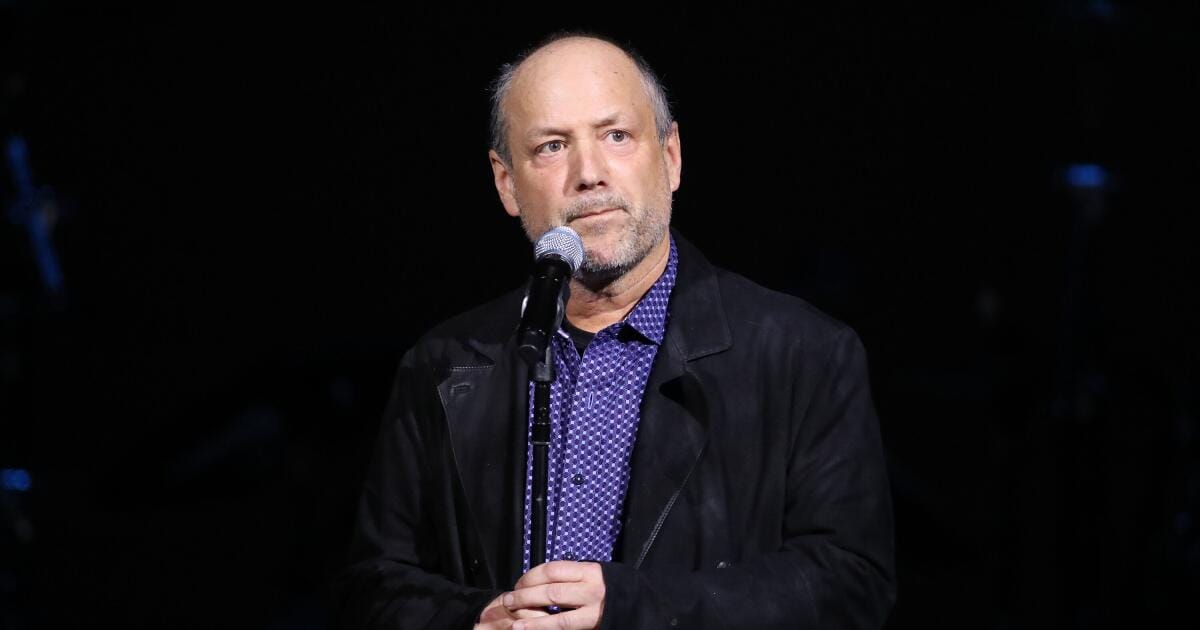Ever since operetta composer Victor Herbert sued Shanley’s restaurant in New York in 1917 to force it to pay for playing his song on a player-piano, songwriters and music publishers have depended on Performing Rights Organizations to make sure they get compensated.
For much of the last century, three organizations dominated the industry, a relatively staid and unglamorous corner of the music scene that remained largely unchanged throughout the eras of radio, records and CDs. But the rise of streaming has led to a surge in revenue and spawned a handful of new organizations looking to cash in.
Now there are at least half a dozen PROs in the United States, representing songwriters and publishers, each demanding that bars, restaurants, hotels and other venues pay a fee or risk being sued.
Businesses say the rising licensing costs have become overwhelming, and some question whether it’s even worth playing music at all. The House Judiciary Committee last fall asked the Copyright Office to investigate the current system and consider potential reforms. In February, the Office opened an inquiry and received thousands of comments from businesses and songwriters.
“The growing proliferation of PROs and their lack of transparency have made it increasingly difficult to offer music in our establishments,” hundreds of small businesses from across the country wrote to the Copyright Office in a joint letter.
“The issue is not that small businesses are unwilling to pay for music,” they wrote, adding that the current system is unfair and untenable. “Small businesses can be left feeling like PROs have them over the proverbial barrel.”
Creating a welcoming ambiance in a restaurant or yoga studio isn’t as simple as putting on a Spotify playlist. Streaming has unleashed trillions of songs, and every one must be licensed and have royalties paid to the songwriter whenever any track is played in public. Violations can cost up to $150,000 per infringement.
This booming market for music publishing has led to a windfall for the two major PROs. The American Society of Composers, Authors and Publishers, founded in 1914, and BMI, established in 1939, together represent more than 90% of musical compositions in the U.S. today with talent lists covering Taylor Swift, Olivia Rodrigo, Jay-Z, Lady Gaga and Eminem, to name a few. SESAC, founded in 1931, rounds out the original three and operates on an invite-only basis.
ASCAP, the oldest and, as a nonprofit, the only PRO to publicly share data on its collections and payout, has seen revenue jump to $1.8 billion in 2024 from $935 million in 2010. Broadcast Music Inc., in its last public report as a nonprofit in 2022, showed record revenue of $1.6 billion, with 48% of that from digital sources.
This kind of growth hasn’t gone unnoticed. In just over the last 12 years, three new PROs have emerged. Legendary music manager Irving Azoff founded Global Music Rights in 2013, offering “boutique services” and royalty transparency, building a stable of more than 160 high-profile songwriters such as Bad Bunny and Bruce Springsteen.
AllTrack, founded in 2017, caters to smaller, independent songwriters. Pro Music Rights launched in 2018 and says it represents more than 2.5 million musical works, including AI-created music.
Many songs today are composed by several songwriters, each of whom could be affiliated with a different PRO. Therefore, to legally play those songs, establishments must pay for a license from each PRO. Most PROs offer blanket licensing agreements, meaning that they provide access to their entire repertoires for one fee. And while that gives a particular venue a wide range of musical freedom, it also means bars and restaurants are paying for thousands of songs they may never play or are essentially paying twice, in instances where a song with multiple writers is represented by more than one PRO.
The National Restaurant Assn. said its members pay an average of $4,500 per year to license music, or 0.5% of the average U.S. small restaurant’s total annual sales.
“This may not seem like a large amount, but for an industry that runs on an average pre-tax margin of 3%-5%, this cost is significant, especially since operators don’t clearly understand what they get for this particular investment aside from avoiding the very legitimate threat of a business-ending lawsuit,” the association wrote in public comments to the Copyright Office.
The American Hotel & Lodging Assn. said the mushrooming number of PROs has led to “significant increases in both financial and administrative burdens.” It gave an example of one “major global hotel chain” that reported the cost per hotel for PRO license fees rose by about 200% from 2021-25, with some hotels seeing increases of 400% or more.
A large hotel that hosts occasional live music events could be paying a single PRO $5,000 to $20,000 a year. If it’s paying all of the major PROs, it could be incurring as much as $80,000 in fees, according to the association.
BMI said its licensing fees have remained “relatively steady over the years” and are based on objective criteria that apply equally to all similar businesses. Fees for individual bars and restaurants start at just over $1 a day, according to BMI. Other factors that go into licensing fees include the occupancy rate, and the type of music being played — live, DJed or recorded, for example.
Songwriters’ livelihoods
In the 1917 Supreme Court case that delivered Herbert his victory over Shanley’s, Chief Justice Oliver Wendell Holmes wrote: “If music did not pay, it would be given up.” He wasn’t only referring to the songwriters, but also to the venues themselves and addressing whether music helped generate revenue. The ruling was a win for Herbert personally but also for ASCAP, which he had helped found, and established the royalty payment system that’s largely still in use today.
A spokesperson for ASCAP said an increase in fees paid to songwriters by venues is an appropriate and inevitable outcome of a growing market. The organization’s musical repertoires have grown exponentially over the years to include tens of millions of works, giving music users more music and more choice, the spokesperson said. ASCAP says about 90 cents of every dollar it collects from licensees is made available for distribution to its members as royalties.
“Licensees are seeking more regulation of PROs because they want to pay songwriters less,” ASCAP Chief Executive Elizabeth Matthews said in a statement to Bloomberg. “If transparency, efficiency and innovation are the goals, more free market competition among PROs is the answer— not unnecessary government intervention.”
Songwriters depend on PROs for their livelihoods, especially in the streaming era. Many individual songwriters wrote to the Copyright Office in defense of the PRO system, expressing concern that government regulation would only diminish their hard-won earnings.
“Every royalty payment I receive represents not just compensation for my work, but my ability to continue creating music that enhances these very businesses,” wrote Joseph Trapanese, a composer who has created scores for film and TV.
Performance royalties make up about half of total publishing revenue, which is collected by PROs and dispersed to songwriters, according to the National Music Publishers’ Assn. Last year, only about 5% of songwriters’ earnings came from bars, restaurants and other venues, a figure that is “significantly undervalued,” according to NMPA executive vice president and General Counsel Danielle Aguirre.
“There is a substantial opportunity for growth here,” she said, speaking at the group’s annual meeting in June.
The organization set a goal to significantly increase that money over the next year, likely by enforcing licensing requirements.
Several establishment owners equated the PRO’s efforts to collect fees to a mob-like shakedown, citing aggressive on-site confrontations and threatening letters.
BMI said it spends a lot of time trying to educate business owners on the value that music brings to their establishment, federal copyright law requirements and the importance of maintaining a music license.
Lawsuits are always a last resort, a spokesperson said, which is why BMI spends sometimes years on educational outreach. If those efforts are ignored, however, an in-person visit might occur, and BMI may take legal action.
Opaque, bureaucratic
Despite their differences, songwriters and businesses agree that the current system is opaque and bureaucratic and could serve both sides better.
Businesses complain about the lack of a comprehensive database of songs and the fact that there is no easy system for reporting which songs they’ve played. Meanwhile, songwriters claim that the sheer volume of music and businesses throughout the U.S. makes it hard to track where and when their work is played and to know whether they’ve been properly compensated.
“What’s really being called to question is, is this system working accurately—is the money that should be finding its way to the songwriters’ pockets finding its way in an efficient manner?” said George Howard, a professor at Berklee College of Music. “And the answer is ‘no.’ There’s no excuse for that with the level of technology we have today.”
BMI and ASCAP joined forces in 2020 to launch Songview, a free digital database showing copyright ownership and administration shares for more than 20 million works. The two PROs are exploring including GMR and SESAC, which would add even more songs to the platform.
Some of the complaints about the PRO licensing system go back decades. Michael Dorf, a producer and founder of the legendary Manhattan music club The Knitting Factory, has faced off with PROs numerous times over his 30-some years as a venue operator. In the 1990s, he signed singer-songwriters who performed at his club to his publishing company and submitted their setlists to the PROs, assuming he and his acts would reap the resulting royalties from their performances.
But no money came in
“We didn’t receive one penny,” Dorf, who’s also the founder and chief executive officer of City Winery, said in an interview. “To me, there is a cost of doing business, and we want to have the artists and the songwriters properly paid — we love that. What’s simply frustrating is to pay money and know it’s not going to the reason why it’s being collected.”
Caleb Shreve, a songwriter and producer who’s worked with the likes of Jennifer Lopez and is also chief executive at Killphonic Rights, a rights collection organization, said he hears music he has produced “all the time in yoga spots and bars, and I’ve never seen them on publishing statements.” Many songwriters are convinced the current system favors the biggest artists at the expense of middle-tier and emerging songwriters. Because of the blanket licensing system, BMI and ASCAP don’t track individual song use by those licensees and instead rely on proxy data, like what’s popular on the radio or through streaming platforms, to divvy up those collected fees.
Sometimes radio hits mimic what’s played in an arena, restaurant or bar, but not always.
ASCAP said it tracks trillions of performances every year across all media platforms and only uses sample surveys or proxy data when obtaining actual performance data isn’t feasible or is cost prohibitive.
Technology could be a way to solve the current issues without regulation. London-based Audoo is one company leading the way.
Founded by musician Ryan Edwards in 2018 after he heard his music being played in a department store and discovered he wasn’t getting paid for it, the growing startup uses proprietary listening devices it places in cafes, gyms and other public venues to recognize and log songs. It uploads the data to the cloud, ensuring every artist — not just the chart toppers — receives compensation for their work.
The company has attracted investment from music icons including Elton John and Adele, and its devices are used by PROs in the U.K. and Australia. It made its first foray into the US earlier this year, placing listening devices in about 180 establishments around the Denver area in a test run.The collected data underscored that what’s played in public places doesn’t necessarily mirror what’s on the popular playlists or radio and streaming platforms. Edwards likens the idea of using proxies to political polling — directionally helpful but not precise.
Audoo found that 77,000 unique tracks were played around Denver over two months, split among 26,000 artists, according to data viewed by Bloomberg News. On average, only 6.6% of the top-40 songs played in the venues also appeared on Billboard’s top radio-play chart.
In markets where Audoo has partnered with venues, Edwards said business owners have been proud to support particular songwriters and the music business writ large.
“All of a sudden it went from a push-and-pull of, ‘Why do I owe you money?’ to, ‘OK, I can understand music is funding the people who create,’” Edwards said.
Carman and Soni write for Bloomberg.




















